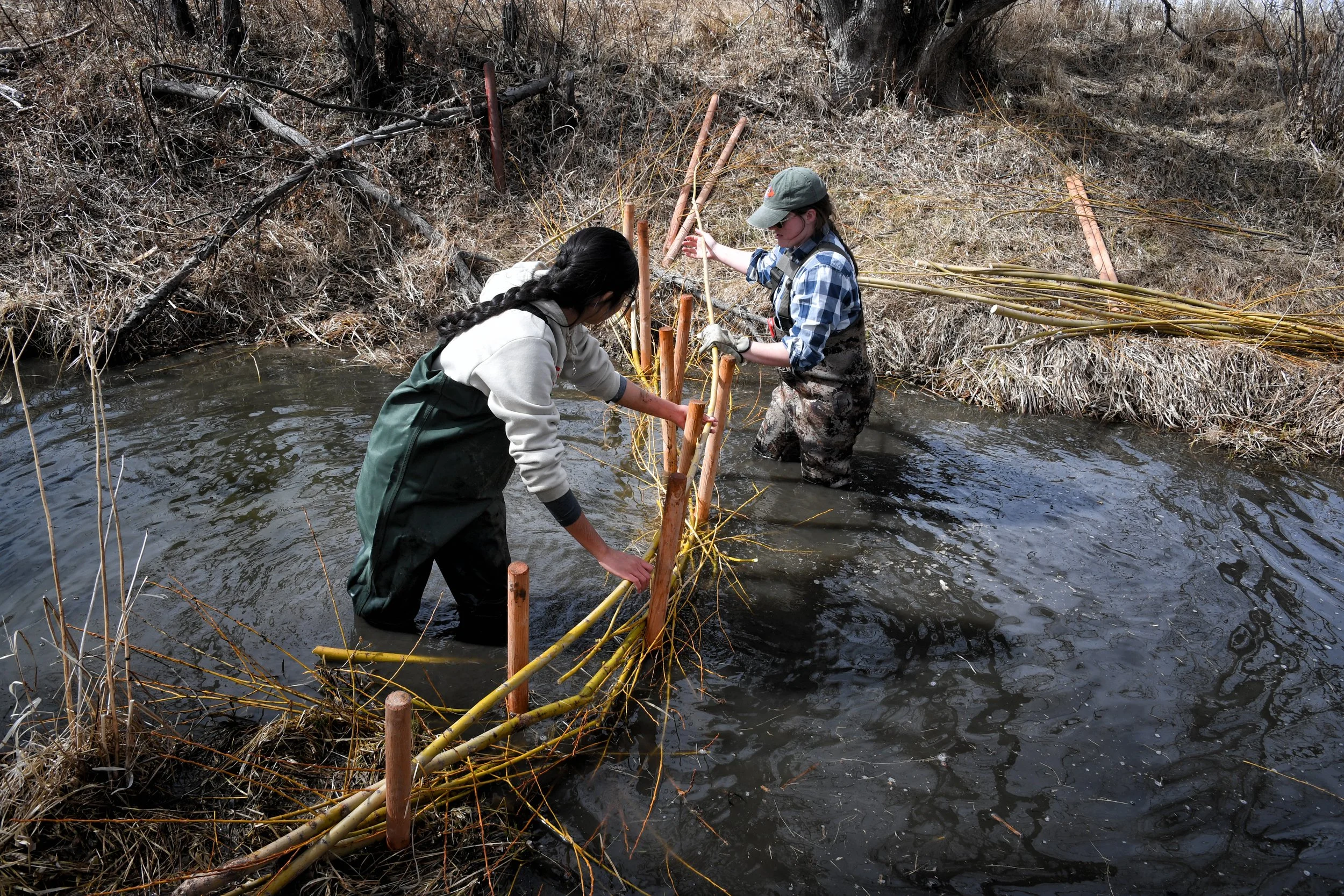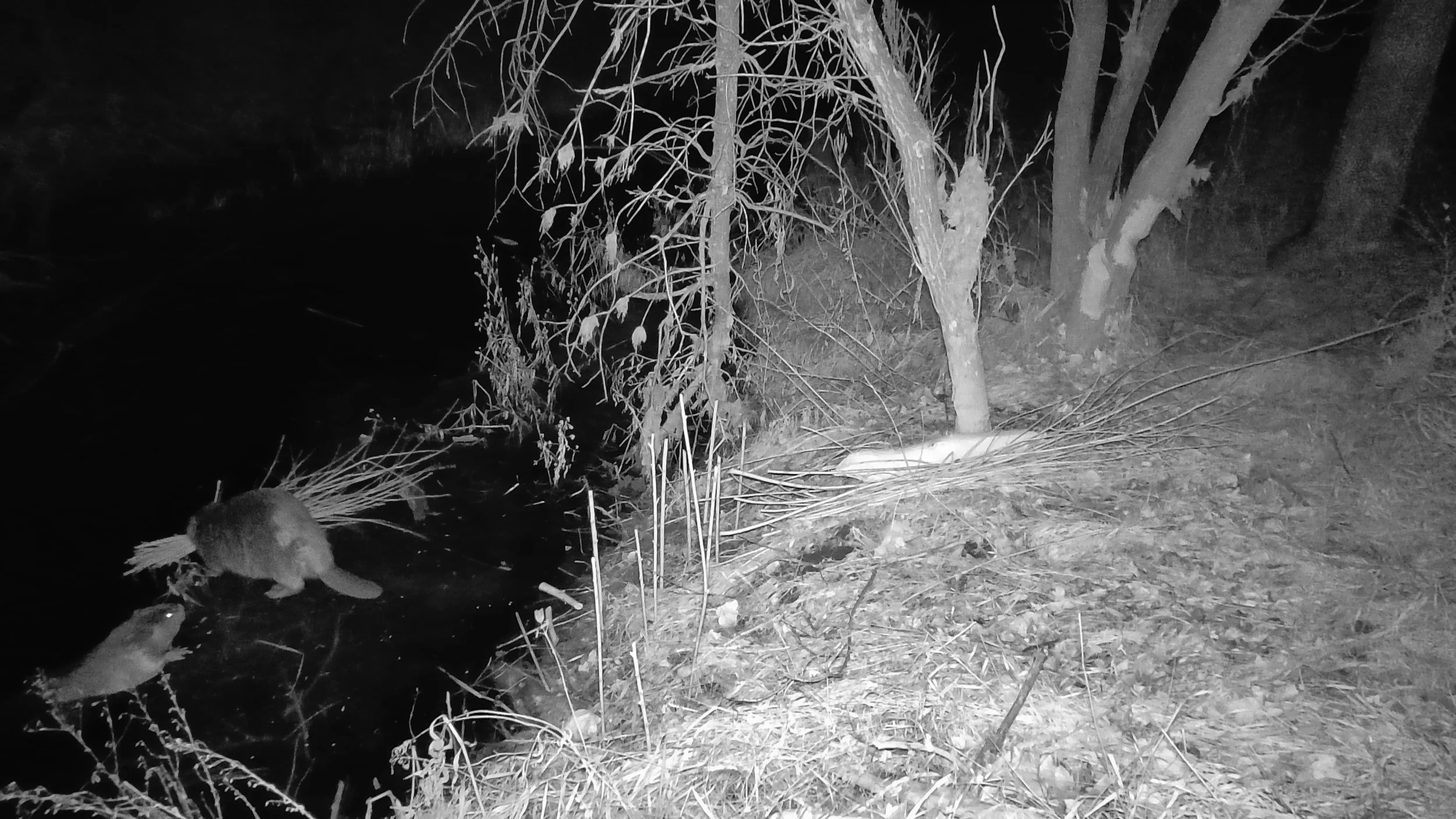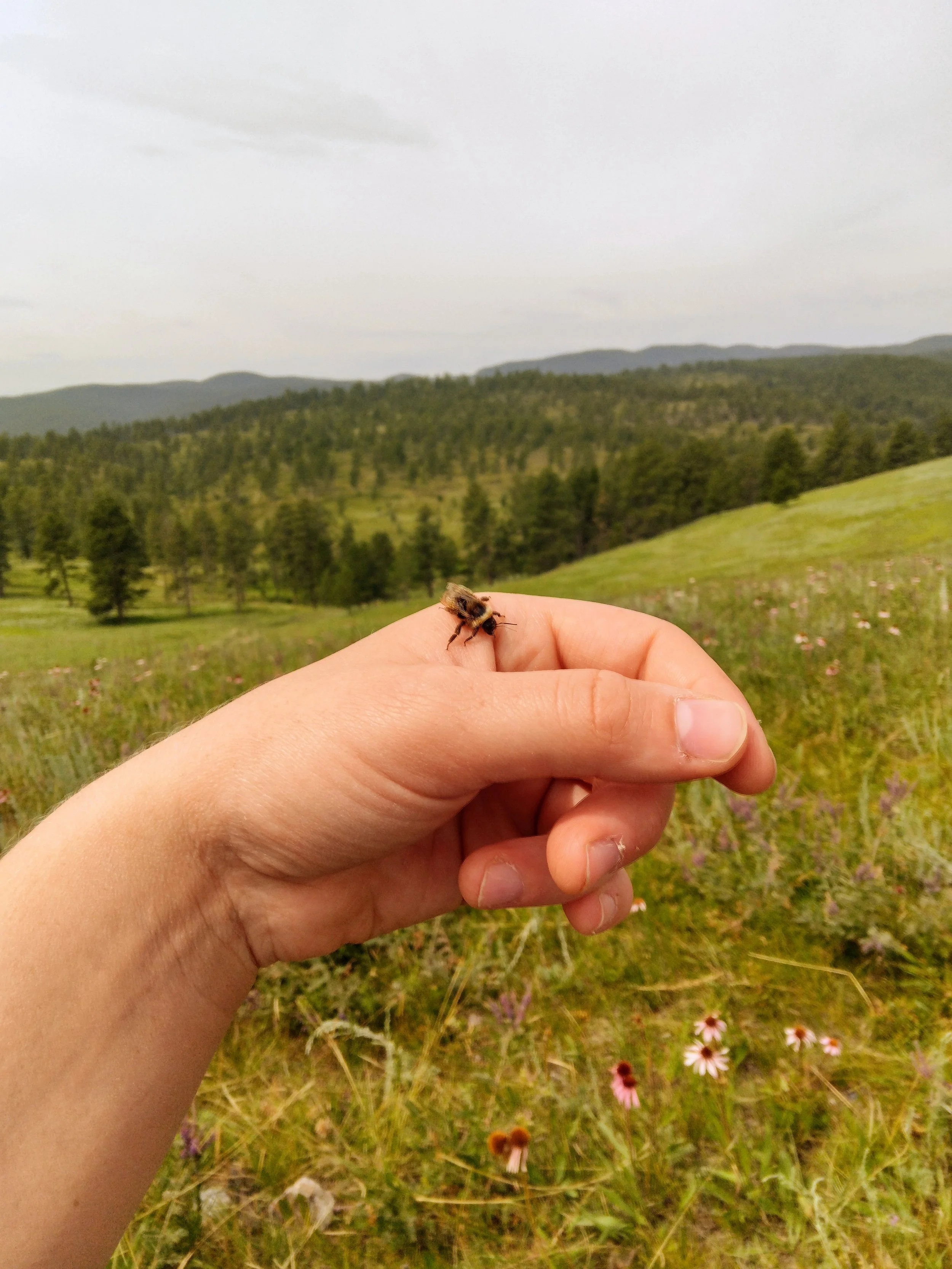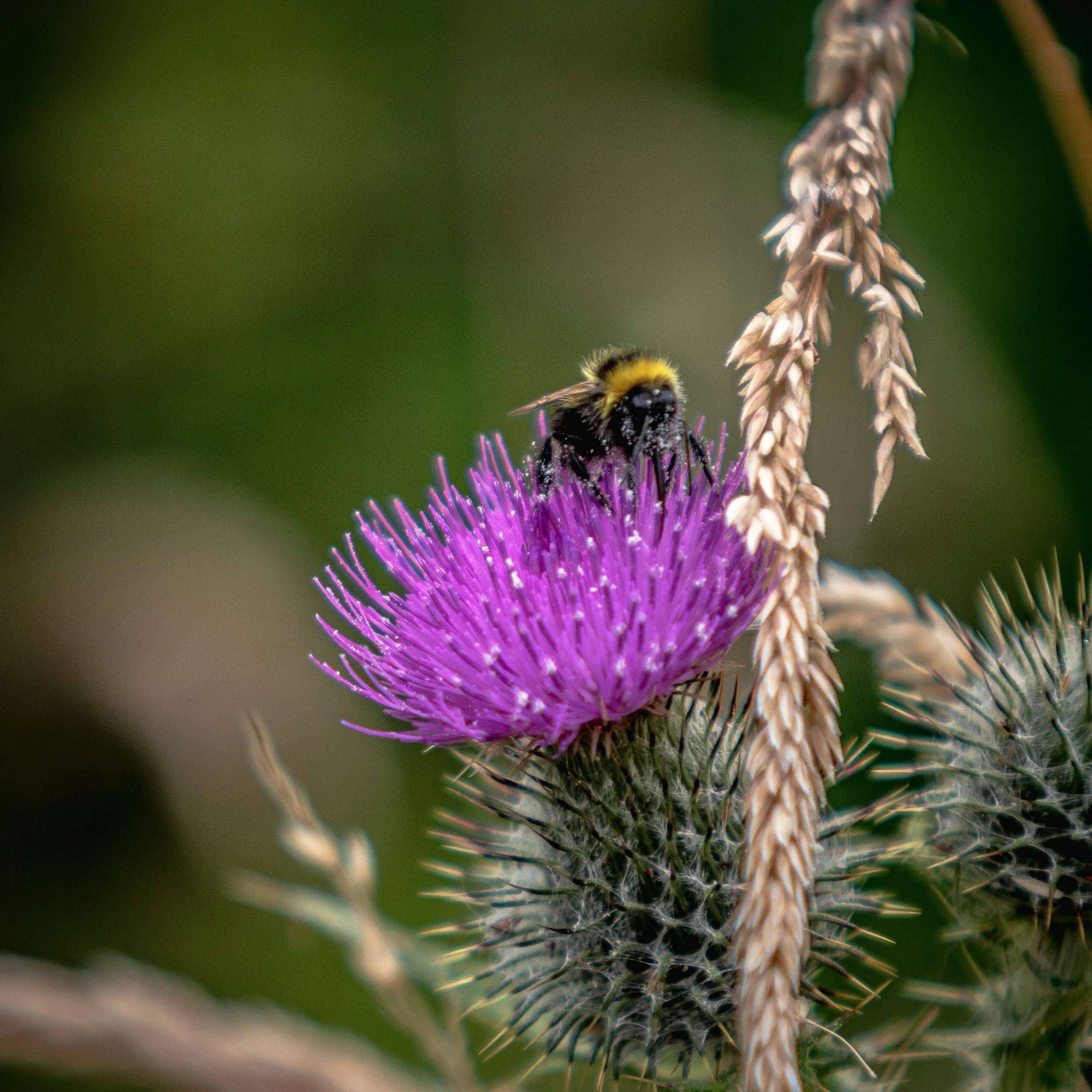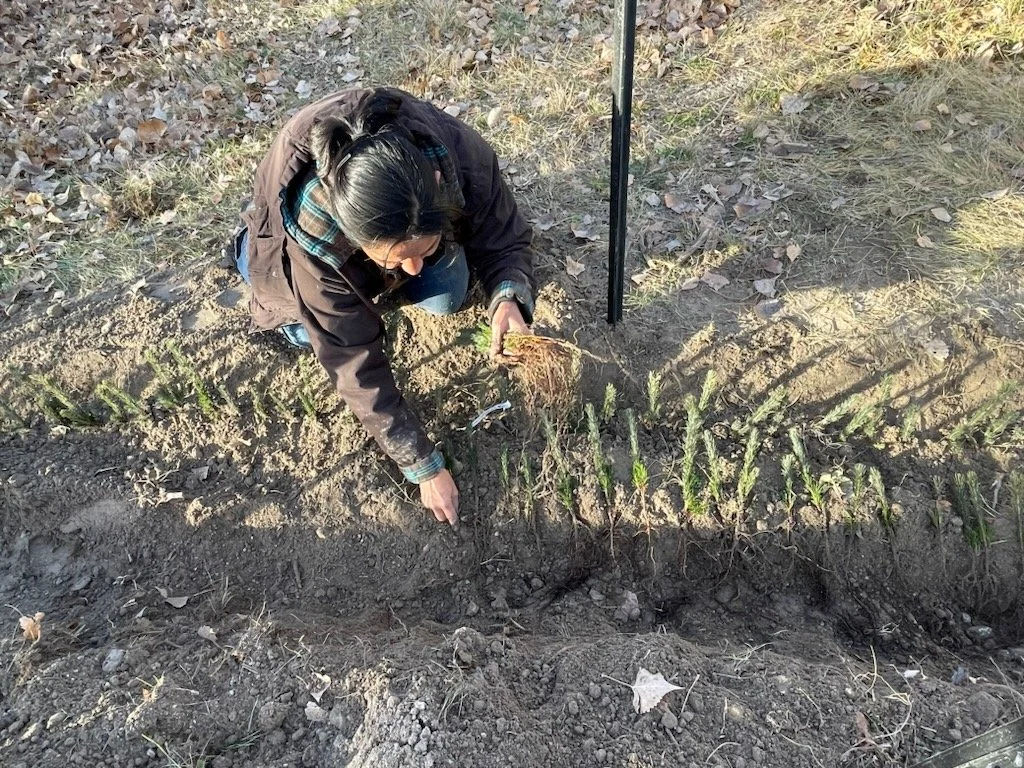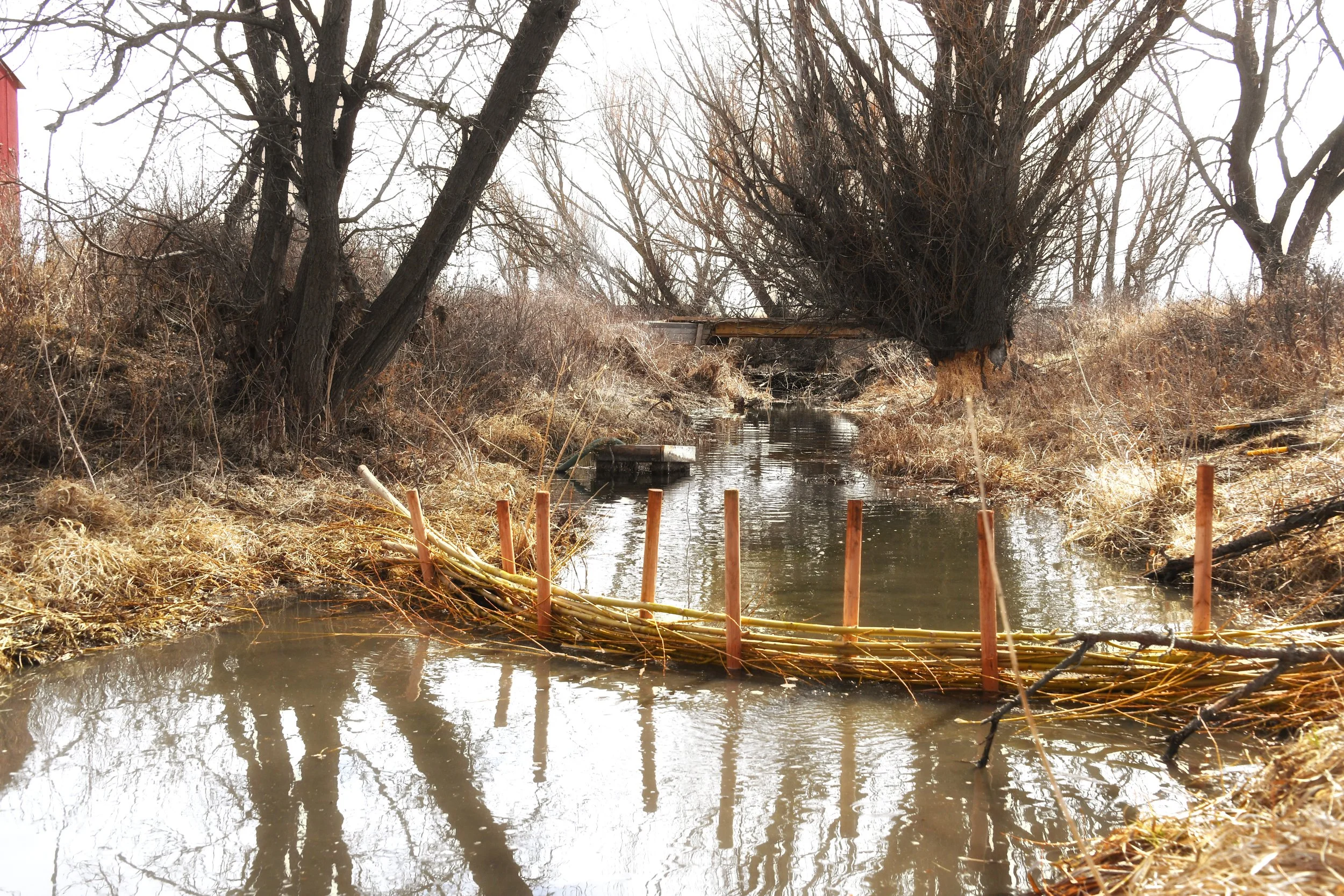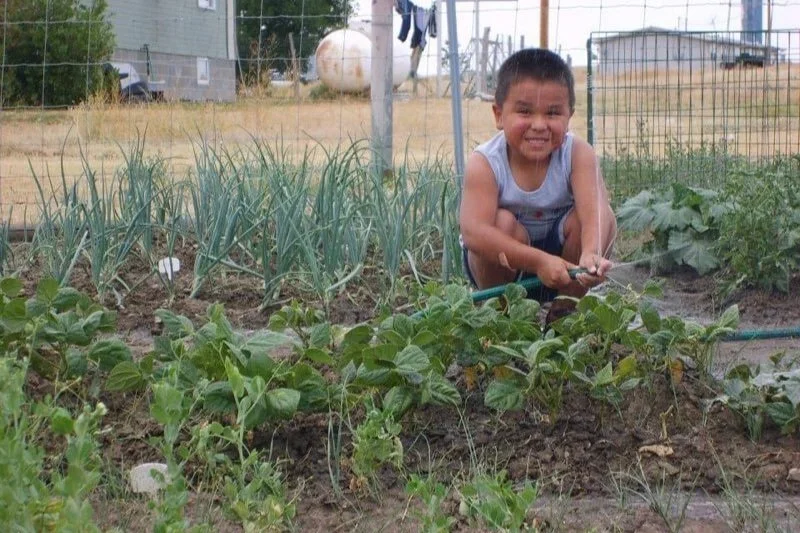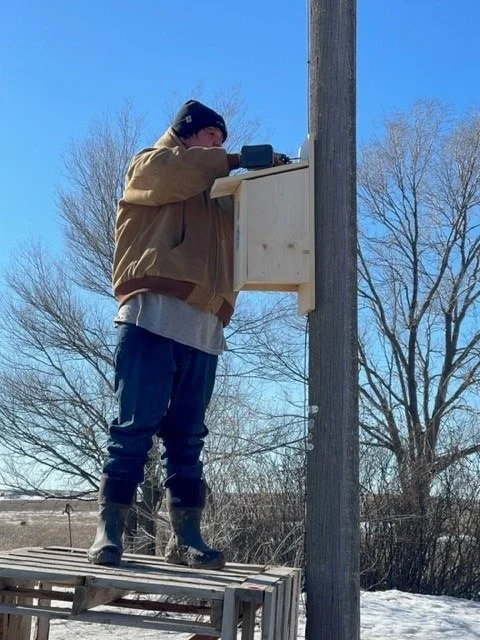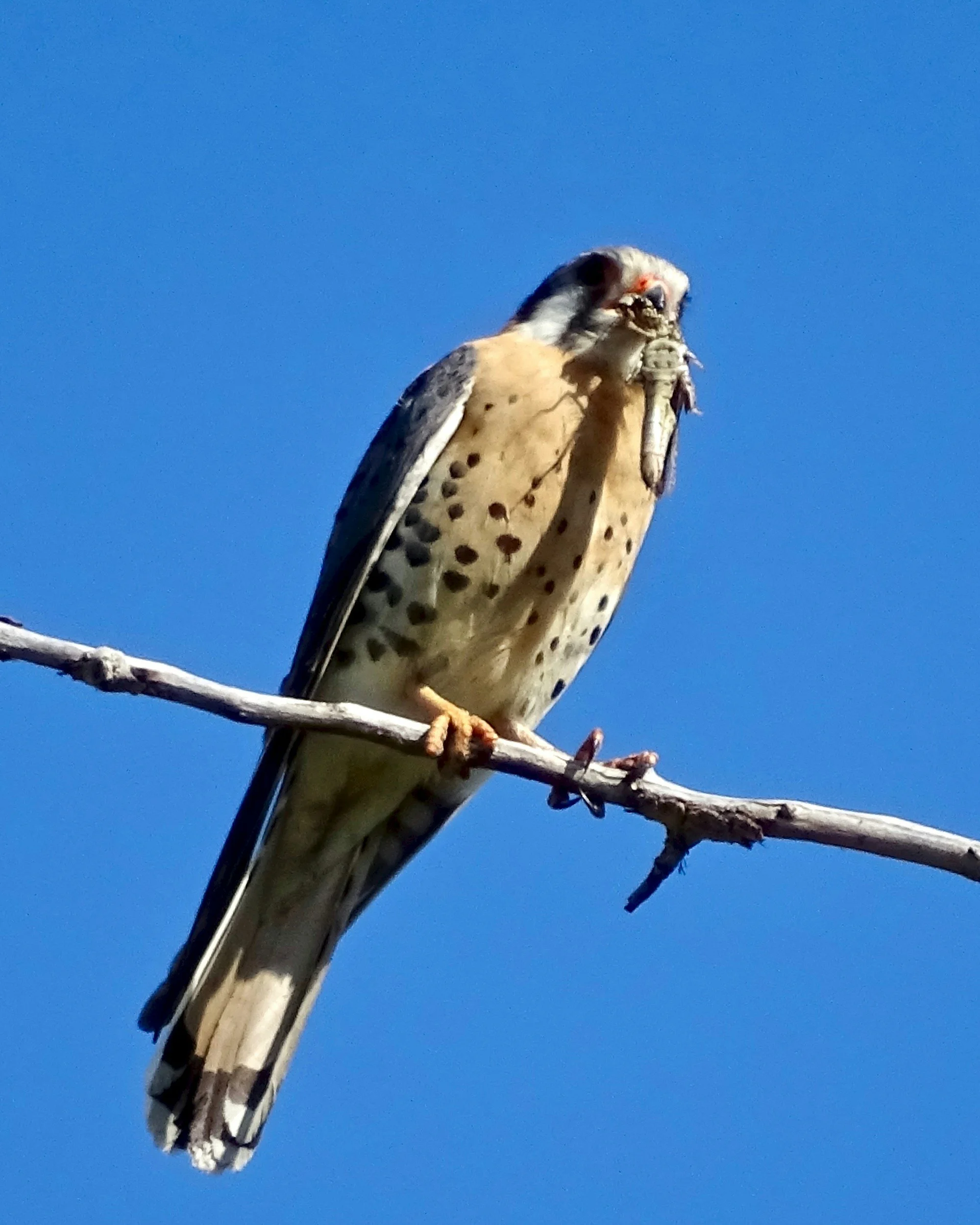
Current Projects
Porupine Creek Watershed Restoration
Due to a number of reasons- agricultural runoff, mismanaged grazing, fire suppression, beaver extermination, river straightening, draining of fields and wetlands, and overuse of water- most (if not all) of the streams and rivers in the Northern Great Plains are in a severely degraded state. Many of the once-perennial and ephemeral streams on our working lands remain dry for the majority of the year, leaving producers and communities in a state of water insecurity.
The Porcupine Creek Watershed Project was started in partnership with the Department of Math, Science, and Technology at Oglala Lakota College in an effort to promote community-led conservation on the Tribal lands along Porcupine Creek, a tributary to the White River. Since 2024, our team has hosted public workshops on stream restoration, held hands-on demonstrations on stream restoration techniques, and developed a network of landowners, community members, and local partners who are passionate about promoting the health and restoration of this critical habitat and crucial water source.
Bumblebee Surveys
About 75% percent of our food crops are dependent upon pollinators, yet nearly half of our pollinators are threatened with extinction today (NPS). At Rebel West, we work to install pollinator gardens, practice pollinator-friendly farming techniques, and teach community members about the importance of these species.
This year, our team participated in the Great Plains Bumblebee Atlas. Please contact us if you are interested in joining and learning about our amazing local bumblebees. Or check out their website if you’re interested in helping bumblebees in your neck of the woods!
Regenerative Windbreak Project
The Regenerative Windbreak Project supports Rebel West’s mission to empower community members to promote coexistence between people, animals, and the land. In addition to functioning as a weather barrier, each windbreak will be designed with special focus on habitat creation, food production, beautification, and small-scale rewilding. Specific emphasis is placed on threatened and endangered prairie species, in particular wildlife and/or native plants of cultural importance to local Indigenous peoples.
Rebel Pathways - Jane Goodall’s Roots & Shoots Program
The field of conservation is notoriously difficult to enter. Aspiring conservation professionals require an expensive degree and often need to volunteer or pay for hands-on experience simply to acquire low-salary seasonal positions. The amount of time, money, and connections needed to enter into this field of work is prohibitive for many people, especially those from low-income communities. We believe conservation should be for everyone.
Our Rebel Pathways program, affiliated with Dr. Jane Goodall’s Roots & Shoots program, endeavors to provide equitable, hands-on and real world opportunities for experience and employment in conservation and Nature-based, regenerative agriculture. With support from Oglala Lakota College, OLC’s Bridge Program, and the school systems in and around the Pine Ridge Reservation, we are developing a program that would provide paid internships and hands-on experiences for underserved community members who would otherwise often be overlooked by other employers. Our goal is to promote workforce development in the field of conservation, as well promote conservation and biodiversity in these areas.
Kestrel-Based Pest Control
American Kestrels, North America’s smallest falcons, are small but mighty predators. Though they are little- no larger than a dove or pigeon- they are “mean green grasshopper eating machines”. Every part of their anatomy, from their tomial toothed beaks used for severing the spinal cords of prey to the black malar stripes present to limit sun glare, is designed to kill small mammals and insects.
Grasshoppers- the kestrel’s favorite food- are extremely damaging to crops and property on the Northern Great Plains. Every few years, thousands of grasshoppers descend on the plains of South Dakota, causing destruction and frustration to communities. Though many landowners and farmers choose “conventional” methods of population control (Insecticidal sprays, baits, etc) many of the community members we work with prefer to avoid the use of synthetic pesticides, especially in areas where Traditional Medicines are grown.
In addition to other regenerative agricultural practices, our team encourages the use of predators, such as the American Kestrel, to manage pest populations on small farms. Not only does their presence support healthy food production, the preservation of their habitat provides a home for other “edge species” that utilize the same habitat as these mighty falcons.
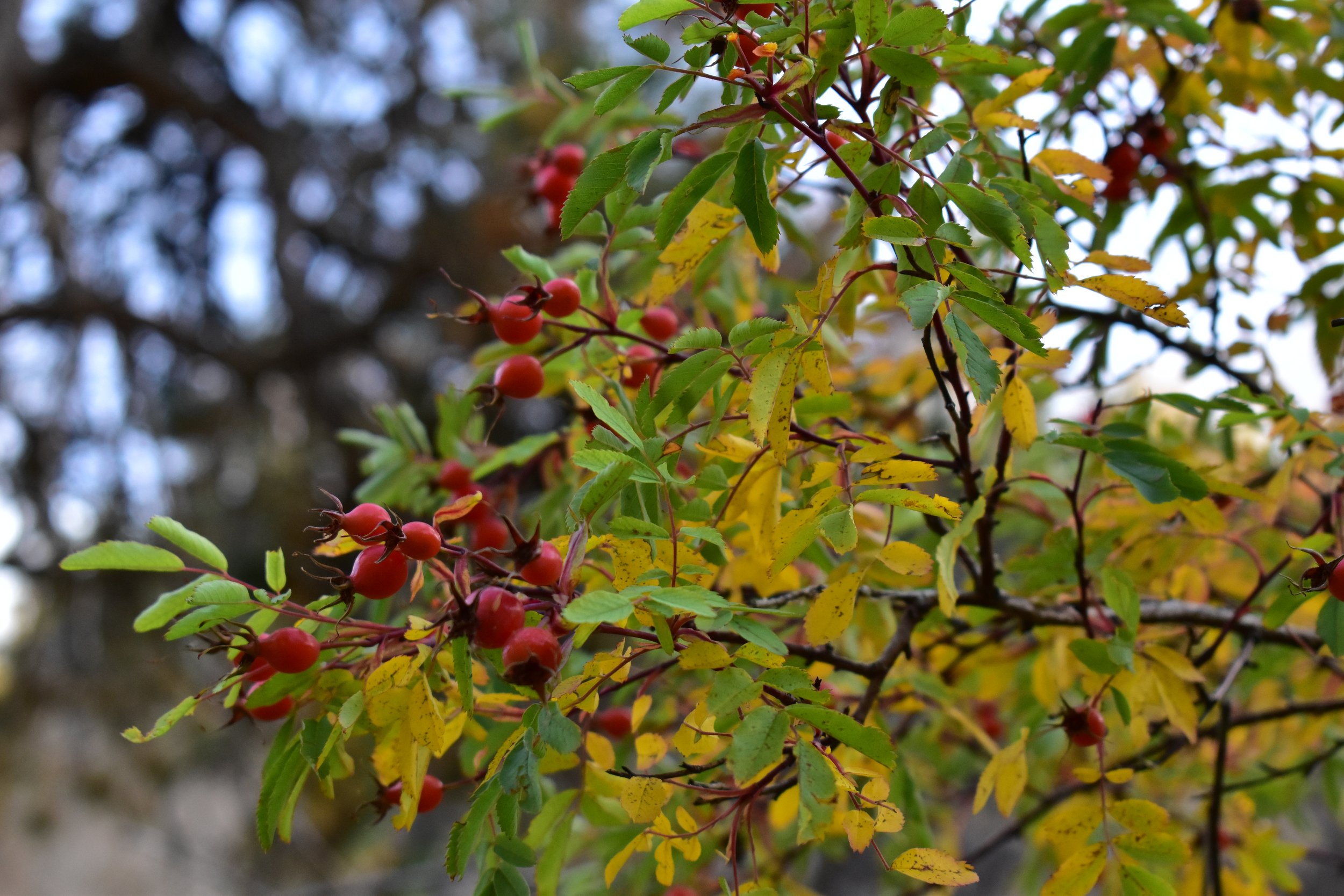
Interested in getting involved?
Please contact us if you’re interested in volunteer or partnership opportunities!




